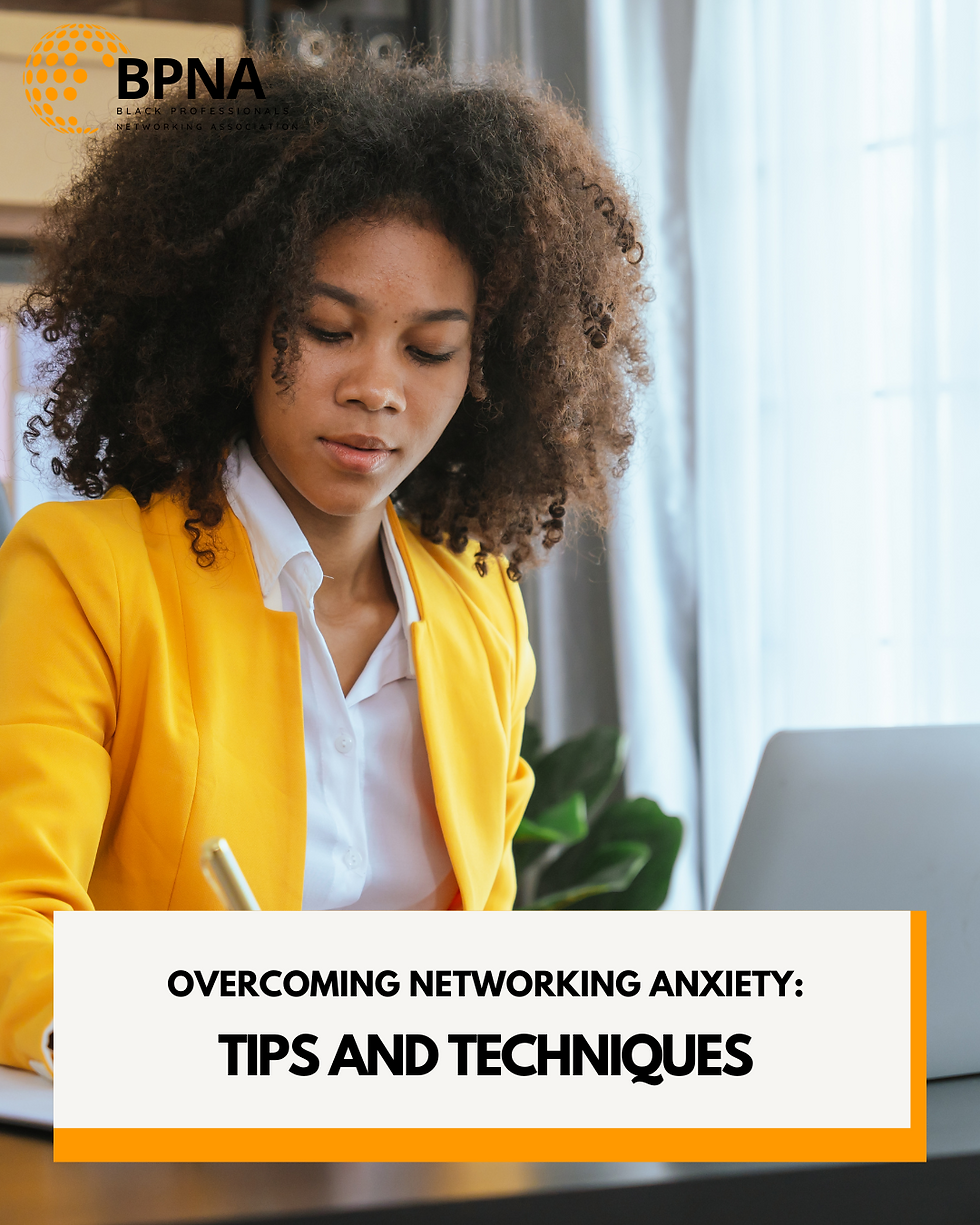Overcoming Networking Anxiety: Tips and Techniques
- Julianna Bonnett
- Jul 16, 2024
- 3 min read

Networking is a crucial aspect of professional growth, offering opportunities to build relationships, exchange knowledge, and open doors to new possibilities. However, for many people, the thought of networking induces anxiety and discomfort. If you find yourself dreading networking events or feeling overwhelmed by the prospect of initiating conversations with strangers, you're not alone. Here are some practical tips and techniques to help you overcome networking anxiety and make meaningful connections with confidence.
1. Shift Your Mindset
The first step in overcoming networking anxiety is to change your perspective on networking. Instead of viewing it as a daunting task, think of it as an opportunity to meet new people, learn from others, and share your own experiences. Remember, networking is not just about making contacts for career advancement; it's about building genuine relationships that can be mutually beneficial.
2. Prepare in Advance
Preparation can significantly reduce anxiety. Before attending a networking event, research the attendees, speakers, or companies that will be present. Have a few conversation starters or questions ready to ease into discussions. Knowing what to expect and having a plan can boost your confidence and make you feel more in control.
3. Set Realistic Goals
Set achievable goals for each networking event. Instead of aiming to meet as many people as possible, focus on making a few meaningful connections. Quality over quantity is key. Setting realistic expectations can alleviate the pressure and help you enjoy the process more.
4. Practice Active Listening
One of the most effective ways to overcome anxiety is to shift the focus from yourself to the person you’re speaking with. Practice active listening by paying full attention to the other person, asking open-ended questions, and showing genuine interest in their responses. This not only eases your anxiety but also makes you a more engaging and memorable conversationalist.
5. Start Small
If large networking events feel too overwhelming, start with smaller gatherings or one-on-one meetings. This could be coffee meetings, small group discussions, or informal meetups. As you become more comfortable in these settings, you can gradually work your way up to larger events.
6. Use Your Strengths
Leverage your strengths and personal style in networking situations. If you’re more comfortable writing than speaking, consider following up with people via email or social media. If you’re good at organizing, host your own small networking events where you feel more in control. Play to your strengths to create a networking approach that works for you.
7. Join Networking Groups
Joining networking groups or professional associations can provide a more structured and supportive environment for networking. These groups often have regular meetings and activities designed to facilitate connections, making it easier to engage with others without the pressure of a large event.
8. Practice Self-Care
Taking care of your mental and physical health can help reduce anxiety overall. Ensure you’re getting enough sleep, eating well, and exercising regularly. Practice mindfulness or meditation to help manage stress. The more balanced and relaxed you feel, the more confident you’ll be in networking situations.
9. Remember, You’re Not Alone
Networking anxiety is common, and many people at networking events feel the same way. Remember that others are likely experiencing similar feelings, and they’ll appreciate your efforts to connect. Sometimes, simply acknowledging your anxiety and accepting it can make it more manageable.
10. Follow Up
After the event, take the time to follow up with the people you met. Send a brief email or connect on LinkedIn to express your appreciation for the conversation. This reinforces the connection and sets the stage for future interactions, making the initial anxiety worth the effort.
Overcoming networking anxiety is a gradual process, but with the right mindset and strategies, it’s entirely possible. By preparing in advance, setting realistic goals, and focusing on building genuine relationships, you can turn networking from a source of stress into a rewarding and enjoyable activity. Remember, every connection you make is a step toward personal and professional growth.

.png)



Comments